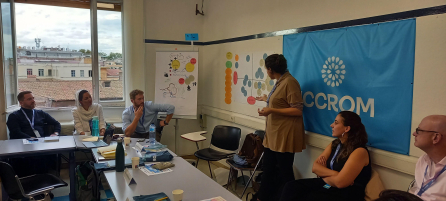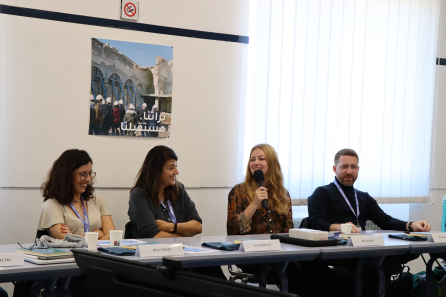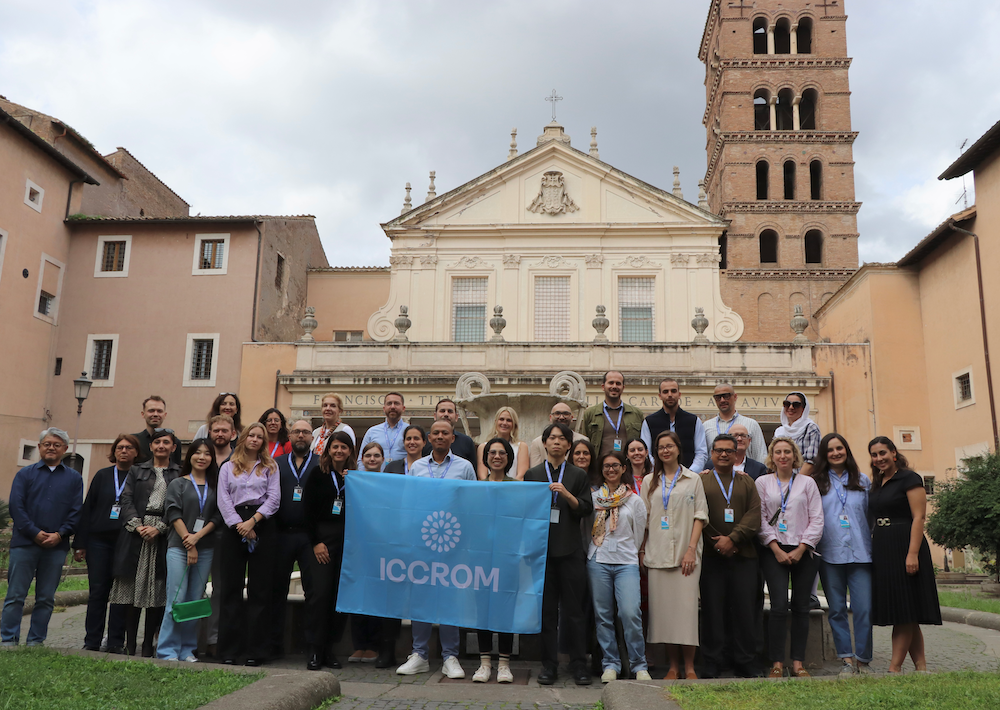The International Training Course on Post-Crisis Recovery of Cultural Heritage has completed its second phase with an engaging in-person workshop held in Rome. Following six thematic online sessions, participants came together for an intensive week-long workshop at ICCROM headquarters.
The in-person workshop built on the knowledge gained during the online phase that covered a range of topics, including value assessment in post-crisis contexts, situation analysis, damage and risk assessment, documentation, post-disaster needs assessment, and recovery tools. Key themes such as social and economic considerations, recovery planning approaches, the "Build Back Better" initiative to enhance recovery capacity and decision-making before disasters, and adaptive reuse principles were also explored.
Heritage experts from ICCROM, Fondazione Santagata for the Economics of Culture, the University of Exeter, UNESCO, ICOMOS, ALIPH Foundation, and more facilitated these discussions through presentations and case studies, which included:
- the consolidation of historical heritage in seismic areas, with insights from Assisi, Italy;
- planning and implementing UNESCO projects with a focus on Mosul, Iraq;
- emergency preparedness and response lessons learned from heritage sites following the 2023 Türkiye earthquake; and
- reflections on the 2022 monsoon in Sindh, Pakistan.
Throughout the week in Rome, participant groups collaborated on assignments relevant to their peers’ case studies, synthesizing various topics covered during the course. These efforts culminated in recovery project proposals presented on the final day of the workshop, fostering rich discussions and insights drawn from the diverse experiences of all participants.
“It this is a good opportunity to learn the theory and the method projects that I can adjust and adapt to my work”, said Waraporn Suwatchotikul from Thailand
“What motivated me to join the PCR course is the lack of documentation appropriate to damage assessment that we have currently for my case study which is earthquakes in Mexico and the southern region so gaining a little bit more perspective and also understanding in a more global way is with this course is bringing into my career” adds Geraldine Freyria Ojeda Flon from Mexico.
This course is a collaborative effort between ICCROM and Fondazione Santagata for the Economics of Culture, with generous support from the ALIPH Foundation and Kimia S.p.A.



